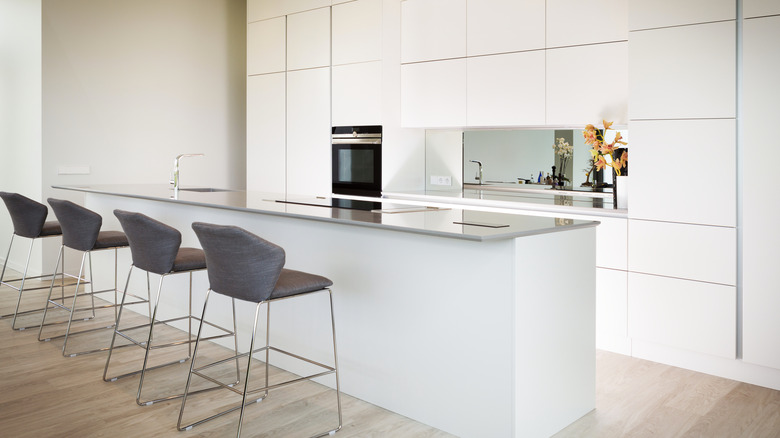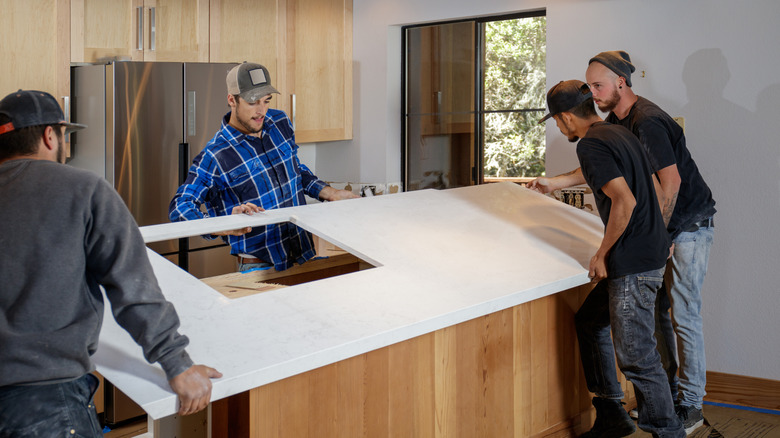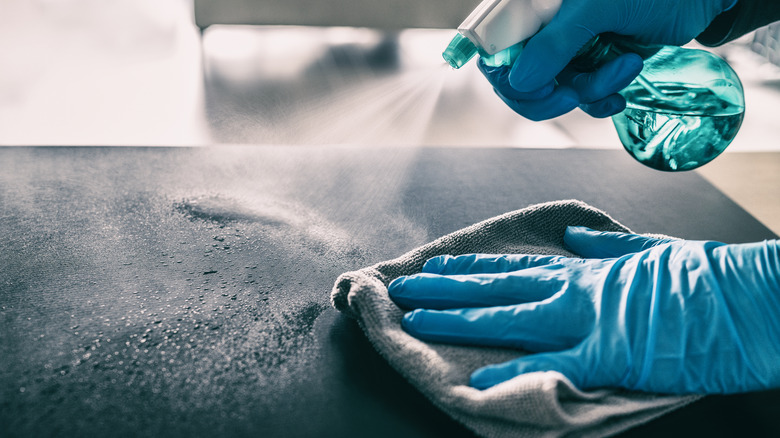Here Are The Downsides Of Installing Corian Countertops In Your Kitchen
If you're in the market for new countertops and have looked into Corian as an option, you may want to consider the downsides of these solid surface countertops before installing them. One major concern is that they are highly susceptible to scratches. Even with diligent care, knicks and blemishes are inevitable over time, particularly in busy homes or those with children, making Corian a poor choice for your kitchen. Moreover, Corian countertops are also vulnerable to heat, so placing hot pots or pans directly on the surface will cause ugly burns or discoloration, necessitating costly repairs or replacements to fix.
In addition to heat and scratches, Corian is known to stain easily. Strong chemicals, acids, and everyday drinks can blemish your countertops, meaning any spills will require immediate attention in order to protect the surface. Corian also has a tendency to develop hairline cracks over time, especially with heavy impact or weight. If your kitchen is a high traffic area or you enjoy keeping heavy appliances on your counters, it may be best to consider a more sturdy option.
Finally, Corian will not resist mold or mildew growth unless it's properly sealed, making it a hygiene concern if you don't keep up with frequent disinfection. Regular cleaning may also expedite the countertop losing its natural luster, causing it to develop a patina which will alter its original appearance. If these characteristics seem concerning, you ought to consider a different material for your countertops.
Cost and maintenance headaches
If you're deliberating between Corian countertops and another option, there are some cost and maintenance aspects that warrant consideration before installing them in your kitchen. Though they are not a natural stone, Corian countertops' price point can rival those of traditionally more expensive options like quartz, granite, and marble. That makes them a substantial investment, though their market resale value does not compare to those of natural stones. It's true that Corian does have some desirable customizations and qualities, like being more durable than laminate, but in the end, if you don't plan to stay in your home, it's not a great investment should you wish to sell your house in the near future.
Another reason you may want to skip putting Corian countertops in your kitchen is that they do require re-polishing to uphold their appearance. This maintenance can be a headache, especially for those with limited time for daily chores due to a busy lifestyle. Similarly, minor scratches, burns, or other damages to the surface can be remedied with sanding and buffing, but these fixes will incur costs through materials or professional repairs — sometimes even a replacement of the entire countertop should it be bad enough. So while Corian may be slightly less expensive up front, it can cost more over time and still not add value to your kitchen as it's less desirable than other countertops like quartz or granite.
Caring for Corian countertops
With all that said, Corian may still be a feasible option for you and your home as some homeowners do enjoy its non-porous surface and uniform appearance. Should you choose this style for your kitchen countertops, it's important to care for it properly to prevent any avoidable damage and extend its lifespan.
First and foremost, regular cleaning of Corian countertops is essential, especially to prevent stains or damage from dirt, crumbs, or grime. Use a mild dish soap — one specifically formulated for Corian — and dilute it in warm water or per the manufacturer's guidelines. Use a soft cloth or sponge and be sure to dry the counters when you're finished. Avoid any abrasive cleaners or tools like steel wool as they will damage the surface.
To prolong the shine of these countertops, you can periodically use a non-abrasive polish or cleaner recommended by the manufacturer. Follow the instructions carefully and buff the surface with a soft cloth to restore its natural glow. Another way you can protect the surface is to use a cutting board and never directly slice or cut anything directly on the counter. Use trivets for hot pans, pots, or utensils and avoid putting any excessive weight on the counter. Should you notice any signs of wear or damage, it's a good idea to be proactive and contact a Corian installer or repair specialist to treat it before it worsens, which will hopefully save you money in the end.


